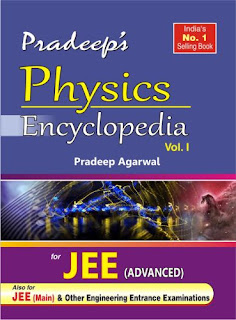JEE Main or JEE Advanced: Analyzing Difficulty and Subjects
When it comes to the pursuit of undergraduate engineering programs in
India, the Joint Entrance Examination (JEE) plays a pivotal role. This
examination is the gateway to prestigious institutions like the Indian
Institutes of Technology (IITs), National Institutes of Technology (NITs),
Indian Institutes of Information Technology (IIITs), and various other
government engineering institutes. However, the JEE is not a single
examination; it is divided into two significant phases: JEE Main and JEE
Advanced. In this article, we will delve into the fundamental differences
between these two exams, exploring aspects like exam pattern, syllabus, difficulty,
preparation, and the choice of the best
coaching institute for JEE.
JEE Main: The First Step
JEE Main is the initial phase of the JEE examination and is often
considered the stepping stone to engineering excellence. It serves as the admission
criterion for NITs, IIITs, and numerous
other prestigious engineering colleges across India. JEE Main is typically
held twice annually, with examination sessions scheduled for January and April.
This examination primarily covers three subjects: Physics, Chemistry, and
Mathematics.
- Physics:
Physics in JEE Main is known for its moderate difficulty level. It
encompasses topics such as Mechanics, Electrostatics, Thermodynamics, and
Optics. While it requires a solid foundation, it is relatively manageable
for most students. To understand how to prepare for JEE mains
effectively, consider seeking guidance from a best coaching institute for
JEE.
- Chemistry: Chemistry, divided into Physical, Organic, and Inorganic
Chemistry, is generally considered the most scoring subject in JEE Main.
With dedicated preparation, students can excel in this section.
- Mathematics: Mathematics in JEE Main is often regarded as the most
challenging. It involves topics like Algebra, Trigonometry, Calculus, and
Coordinate Geometry. Strong mathematical skills are crucial for success in
this section.
JEE Advanced: The Ultimate Challenge
JEE Advanced is the second phase of the JEE series and is designed for
students aiming to secure a seat in the prestigious IITs. This exam is known
for its increased difficulty level compared to JEE Main.
- Physics: The
Physics section in JEE Advanced is notably more challenging than in JEE
Main. It includes advanced problems that need more intricate
problem-solving.
- Chemistry: Chemistry in JEE Advanced is also more demanding. While it covers
the same divisions as JEE Main, the questions are more complex and require
a deeper understanding of the subject.
- Mathematics: Mathematics in JEE Advanced is at its most advanced level. It
comprises topics like Differential Equations, Vector Calculus, and
Probability. High-level mathematical proficiency is essential for success.
Knowing how to
prepare for JEE advanced requires rigorous study and practice.
Analyzing the Difference in Difficulty
The primary difference in difficulty between JEE Main and JEE Advanced
lies in the complexity of the questions and the depth of knowledge required.
JEE Main questions are relatively straightforward, while JEE Advanced questions
are designed to test a student's profound understanding of the subjects.
Moreover, the time allocated for JEE Advanced is more limited, adding to
the overall challenge. Students attempting JEE Advanced need to be
exceptionally well-prepared to handle the intense competition and the demanding
questions.
Making the Right Choice
The choice between JEE Main and JEE Advanced should align with your
aspirations, capabilities, and the colleges you aim to enter. Take into
account the following considerations when arriving at this vital decision.:
- Aspirations: If your ultimate goal is to secure a seat in one of the IITs, JEE
Advanced is the path to take. However, if you aim for other reputed
engineering institutions, JEE Main might be your preferred choice.
- Preparation Time: Assess your preparation level and the time available. JEE
Advanced demands more rigorous preparation, while JEE Main is relatively
more manageable.
- Strengths and Weaknesses: Analyze your strengths and weaknesses in the subjects. If you
excel in Physics and Chemistry, JEE Main might be a better option. If you
are a mathematics enthusiast and love challenging problems, JEE Advanced
could be your forte.
- Competition: Be aware of the competition level. JEE Advanced is more
competitive due to the limited number of seats in the IITs.
Striking a Balance
Both JEE Main and JEE Advanced are significant milestones in the journey
of becoming an engineer in India. Your choice between the two should align with
your ambitions and the level of dedication you are willing to put into your
preparation. Remember that success in either exam ultimately depends on your
hard work, determination, and a strong foundation in the subjects. Choose
wisely, and may your engineering dreams take flight!
To
learn more, you can contact them at
Mobile
no: +91–8448084352 , +91–8448084353
Email
id: contactus(@)iitcoachings.in
Website: www.iitcoachings.in
.png)
.png)


Comments
Post a Comment